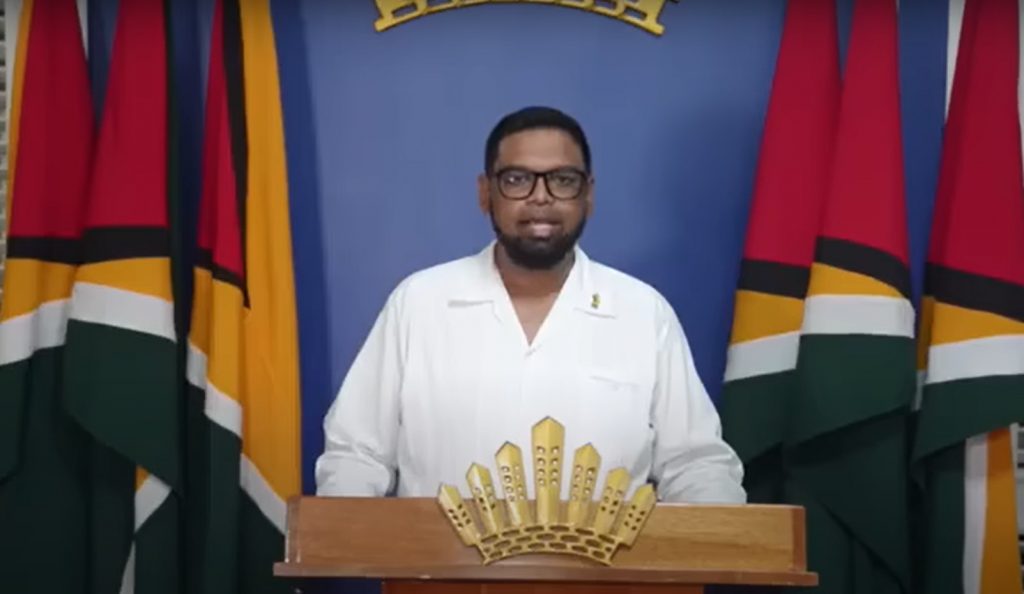In a bid to foster regional peace and stability, President Dr. Irfaan Ali of Guyana has stood firm on his unwavering position that the land boundaries of his nation are not open for discussion. Despite this steadfast stance, President Ali has agreed to engage in diplomatic talks with his Venezuelan counterpart, Nicolás Maduro.
This crucial meeting is scheduled for Thursday, December 14, 2023, at 10:00 hrs in St. Vincent and the Grenadines, with the event being hosted by Prime Minister Dr. Ralph Gonsalves.
In a letter addressed to both Presidents Ali and Maduro, Prime Minister Gonsalves underscored the urgent need for a face-to-face dialogue in light of recent border controversy events. The meeting is set to be attended by Brazil’s President Luiz Inacio ‘Lula’ da Silva, Heads of State of the Caribbean Community (CARICOM), a United Nations Under-Secretary-General, and representatives from the Community of Latin American and Caribbean States (CELAC).
President Ali, known for his commitment to international peace and security, has consistently reiterated Guyana’s dedication to good-neighbourly relations. Central to his diplomatic approach is a steadfast commitment to the International Court of Justice (ICJ) as the sole arbiter in the resolution of the ongoing border controversy.
President Ali’s resilience in upholding the non-negotiability of Guyana’s land boundary was evident during an emergency meeting of CARICOM Heads of Government. Even after being approached again by Prime Minister Gonsalves, President Ali remained resolute that discussions on the land boundaries are off the table while the matter remains before the ICJ.

The proposed diplomatic meeting signifies a collective effort to de-escalate tensions in the region. Leaders from Brazil, CARICOM, and the UN are expected to observe the proceedings, reflecting a united front in promoting peace and stability.
In a statement from the Office of the President in Georgetown, President Ali reassured that Guyana’s development agenda would remain unaffected by the diplomatic engagements. He affirmed a commitment to ongoing defense cooperation with bilateral partners and preserving existing political, social, and economic arrangements.
The roots of the border controversy trace back to the 1899 Arbitral Award, which delineated the land boundary between British Guiana (now Guyana) and Venezuela. Despite historical arbitration, tensions persisted, prompting Guyana to seek affirmation of the Award’s legitimacy from the ICJ in 2018. The recent provisional measures granted by the ICJ aim to prevent any action by Venezuela that could lead to the annexation of Guyana’s territory.
As the diplomatic meeting approaches, President Ali remains resolute in his commitment to international law, emphasizing the importance of the ICJ process in resolving the longstanding dispute. The engagement marks a significant step in regional diplomacy and underscores the collective pursuit of lasting peace and stability in the Caribbean and Latin American region.
Vedan Choolun, London, UK





